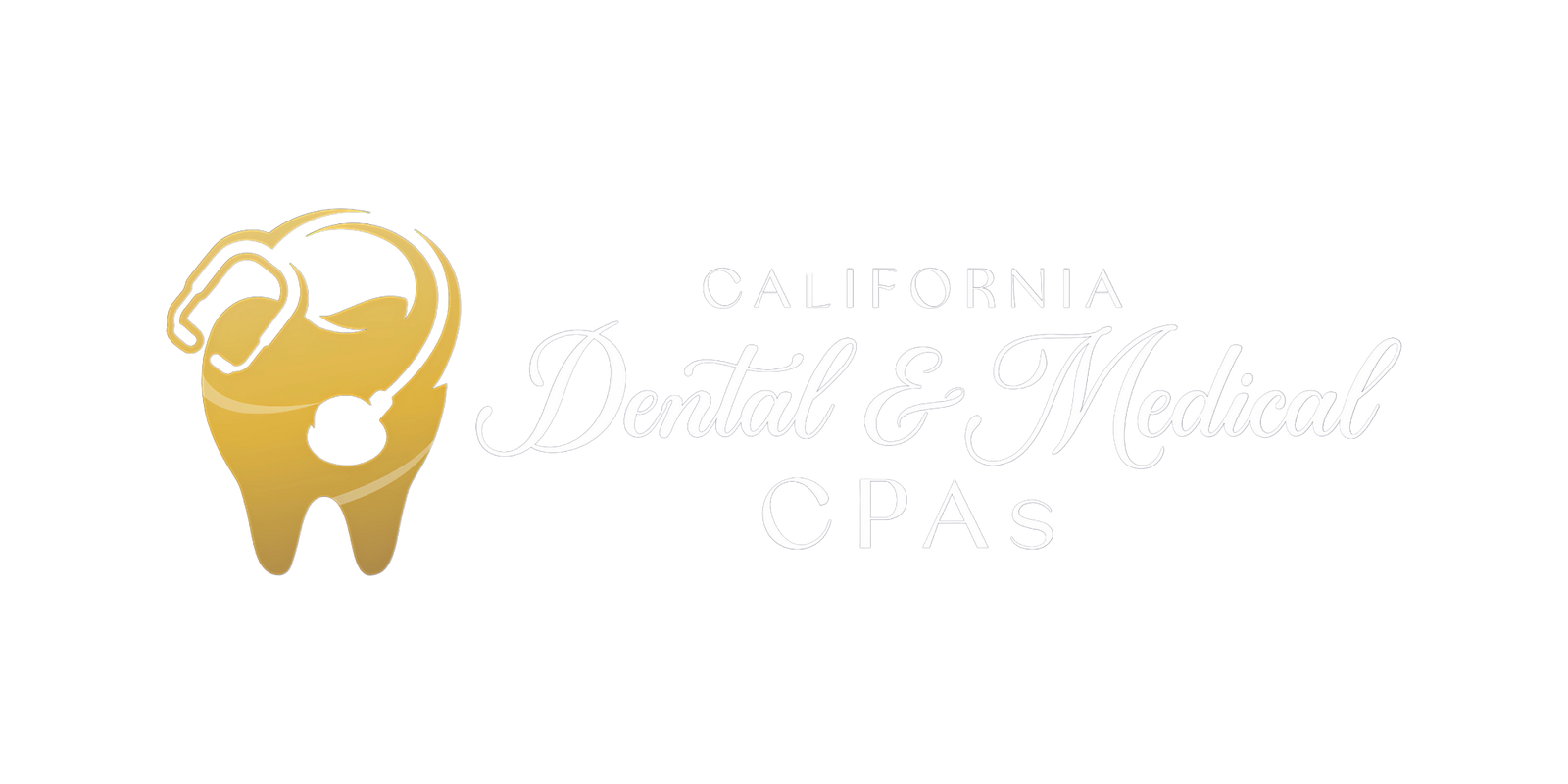If you’re a dentist working as a 1099 contractor in California, keeping your finances in order is vital. Bookkeeping for 1099 dentists in California isn’t just about balancing the books; it’s about avoiding costly mistakes that can lead to issues with the IRS. Understanding your tax obligations and maintaining accurate records can save you from headaches down the line. This article will guide you through the common pitfalls and provide tips on how to manage your finances effectively.
Key Takeaways
- Keep personal and business expenses separate to avoid IRS scrutiny.
- Track all income accurately from different clinics to ensure proper reporting.
- Don’t ignore quarterly estimated tax payments to prevent penalties.
- Implement a reliable accounting system to maintain organized records.
- Be aware of IRS red flags that could trigger audits.
Why Bookkeeping Matters for 1099 Dentists

Bookkeeping is more than just number crunching; it’s the backbone of your financial health as a 1099 dentist. Without a solid system, you’re essentially flying blind, making it difficult to manage your income, expenses, and taxes effectively. Let’s explore why bookkeeping is so important.
Bookkeeping Tips for Independent Dentists
Good bookkeeping helps you keep accurate financial records, manage expenses, ensure tax compliance, and make sound financial decisions. It also simplifies the tax filing process. It’s about having a clear, up-to-date picture of your practice’s financial status.
Here’s why it’s so important:
- Financial Stability: Proper bookkeeping helps you manage cash flow and track revenue, ensuring you always know where your money is going.
- Tax Compliance: Accurate records are essential for complying with federal and state tax laws, helping you avoid penalties and audits. federal tax laws are complex, so staying organized is key.
- Profit Maximization: By tracking every expense and income source, you can identify areas where costs can be reduced and revenue can be increased.
Bookkeeping is not just about recording transactions; it’s about understanding the story your numbers tell. It’s about making informed decisions that drive your practice forward.
Think of it this way: if you don’t know where you stand financially, how can you possibly plan for the future? Good bookkeeping is the foundation upon which you build a successful and sustainable dental practice. CA Dental & Medical CPA can help you with customized accounting and tax solutions.
Understanding the 1099 Status for Dentists in California

What Is a 1099 Independent Contractor in Dentistry?
Being a 1099 independent contractor in dentistry means you’re essentially self-employed. Instead of being an employee, you contract your services to dental offices. This arrangement offers flexibility but also places the responsibility of taxes and benefits squarely on your shoulders. Understanding this distinction is key to managing your finances effectively. It’s not just about filling teeth; it’s about running a business, even if it’s just you. You’ll need to know how to file taxes as a 1099 dentist in california.
Why More Dentists Are Choosing 1099 Work in California
Several factors are driving the trend of dentists choosing 1099 work in California.
- Flexibility: 1099 work allows dentists to set their own hours and choose where they want to work.
- Higher Earning Potential: Dentists can often negotiate higher rates as independent contractors.
- Tax Advantages: There are potential tax deductions available to 1099 contractors that employees don’t have.
Many dentists find the freedom and control over their careers outweigh the added responsibilities. However, it’s important to be aware of the financial implications. For example, you’re responsible for self-employment taxes, which include Social Security and Medicare taxes. You also need to plan for your own health insurance and retirement. A dental accountant can help you navigate these complexities.
Common Tax & Bookkeeping Mistakes 1099 Dentists Make

It’s easy to make mistakes when you’re running your own business. As a 1099 dentist, you’re not only providing dental care but also managing your finances. This section highlights some common tax mistakes for self-employed dentists and bookkeeping errors that can lead to IRS scrutiny or missed opportunities.
Mixing Personal and Business Expenses
One of the most frequent errors is commingling personal and business funds. It’s important to keep these separate to accurately track deductions and avoid raising red flags with the IRS. For example, using a personal credit card for office supplies or paying personal bills from your business account can create a bookkeeping nightmare. Always use dedicated business accounts for all professional transactions.
Not Tracking Income Properly Across Clinics
Many 1099 dentists work at multiple clinics. Failing to accurately track income from each location can lead to underreporting and potential penalties.
Here’s what you should do:
- Maintain a detailed log of income received from each clinic.
- Use accounting software to categorize income sources.
- Reconcile your records with the 1099 forms you receive.
Ignoring Estimated Quarterly Tax Payments
Unlike W-2 employees, 1099 contractors are responsible for paying their income taxes and self-employment taxes throughout the year via estimated quarterly payments. Forgetting or underpaying these can result in penalties. It’s a good idea to calculate your estimated tax liability each quarter and set aside funds accordingly. You can also consult with CA Dental & Medical CPA to help you with this.
Poor Record-Keeping or No Accounting System
Without a solid accounting system, it’s difficult to track income, expenses, and deductions accurately. This can lead to missed tax-saving opportunities and increase the risk of errors.
Implementing an accounting system, whether it’s a simple spreadsheet or dedicated software, is essential. Organize your financial records meticulously. Organizing your records by year and type of income or expense is essential for expediting the audit process and minimizing errors or misunderstandings.
Consider using accounting software like QuickBooks Online, Xero, or even dental-specific software like Dentrix Ascend. These tools can help automate bookkeeping tasks and generate financial reports. You can also seek assistance from bookkeeping system to help you manage your finances.
IRS Red Flags for 1099 Dental Contractors

As a 1099 dentist, you’re responsible for managing your own taxes, and the IRS keeps a close eye on independent contractors. Understanding what triggers their attention can help you avoid unwanted scrutiny. Here’s what you need to know about IRS red flags for 1099 dental contractors.
Inconsistent Income Reporting
One of the biggest IRS red flags is inconsistent income reporting. The IRS receives copies of all 1099 forms issued to you, so any discrepancies between what you report and what’s on those forms will raise a red flag. Make sure you’re accurately tracking and reporting all income from every clinic you work at. Failing to report all taxable income is practically inviting a response from the IRS.
Unusual or Excessive Deductions
Taking deductions that are unusually high for your income level or that seem out of line with standard dental practices can also trigger an audit. For example:
- Claiming unusually high travel expenses.
- Deducting a large amount for home office expenses when you primarily work at dental clinics.
- Rounding expense amounts to nice, even numbers.
It’s important to only claim legitimate business expenses and to keep thorough records to support your deductions. If a deduction seems too good to be true, it probably is.
Late or Missed Estimated Payments
As a 1099 contractor, you’re required to make estimated quarterly tax payments. Failing to do so, or consistently paying late, is a surefire way to attract the IRS’s attention. The IRS expects you to pay taxes throughout the year, not just at tax time. Set reminders and ensure you allocate funds for taxes to avoid penalties and potential audits.
1099 Tax Deductions for Healthcare Providers
As a 1099 dentist in California, understanding 1099 tax deductions for healthcare providers is key to minimizing your tax liability. You’re essentially running your own business, which means you’re eligible for various deductions that W-2 employees aren’t. Let’s explore some of the most significant ones.
Top Tax Write-Offs for 1099 Dentists
Knowing which expenses you can deduct is crucial. Here are some of the top write-offs for 1099 dentists:
- Business Expenses: This includes costs like dental supplies, equipment, and professional insurance. Keep detailed records of all these expenses.
- Home Office Deduction: If you use a portion of your home exclusively and regularly for business, you can deduct a percentage of your home-related expenses, such as rent or mortgage interest, utilities, and insurance. Make sure to follow IRS guidelines carefully to qualify.
- Continuing Education: Costs associated with maintaining and improving your dental skills are deductible. This includes courses, seminars, and professional development activities.
Deductions You May Be Missing
Many 1099 dentists overlook certain deductions that could significantly reduce their tax burden. Don’t miss out on these:
- Self-Employment Health Insurance: You can deduct the amount you paid in health insurance premiums for yourself, your spouse, and your dependents. This is an above-the-line deduction, meaning it reduces your adjusted gross income.
- Retirement Contributions: Contributing to a SEP IRA, SIMPLE IRA, or Solo 401(k) not only helps you save for retirement but also reduces your current taxable income. The contribution limits vary each year, so check the latest IRS guidelines.
- Qualified Business Income (QBI) Deduction: This deduction allows eligible self-employed individuals to deduct up to 20% of their qualified business income. It’s a complex deduction, so consult with a tax professional to ensure you’re taking full advantage of it. This is a great way to optimize your dental practice management.
What Can and Can’t Be Deducted Legally
It’s important to know what you can and can’t deduct to avoid issues with the IRS. Here’s a quick guide:
- Can Deduct: Legitimate business expenses that are ordinary and necessary for your dental practice. This includes expenses like professional dues, subscriptions, and advertising costs.
- Cannot Deduct: Personal expenses, illegal activities, and expenses that are considered lavish or extravagant. Also, you can’t deduct expenses that are reimbursed to you.
Remember, maintaining accurate and organized records is essential for claiming deductions. Keep all receipts, invoices, and other documentation to support your claims. If you’re unsure about a particular deduction, it’s always best to consult with a qualified tax professional.
If you’re a healthcare provider working as a 1099 contractor, you might be missing out on valuable tax deductions. These deductions can help you save money and keep more of your hard-earned income. To learn more about how to maximize your tax benefits, visit our website for expert advice and resources tailored just for you!
Final Thoughts
In summary, keeping your books in order as a 1099 dentist in California is key to avoiding IRS headaches. By steering clear of common mistakes and staying on top of your financial records, you can focus on what really matters—caring for your patients. Remember, using the right tools and possibly teaming up with a knowledgeable accounting firm can make a big difference. If you need help, don’t hesitate to reach out to professionals who specialize in dental accounting. They can help you navigate the complexities of taxes and bookkeeping, so you can keep your practice thriving.
Frequently Asked Questions
What is bookkeeping and why is it important for dentists?
Bookkeeping is keeping track of all the money coming in and going out of a dental practice. It’s important because it helps dentists manage their finances, stay organized, and prepare for tax time.
What does it mean to be a 1099 independent contractor?
Being a 1099 independent contractor means you work for yourself and get paid directly by clients, rather than being an employee. You are responsible for paying your own taxes.
What are some common mistakes 1099 dentists make with their finances?
Common mistakes include mixing personal and business expenses, not keeping track of all income, forgetting to pay estimated taxes, and not having a good accounting system.
How can I avoid IRS problems as a 1099 dentist?
To avoid IRS issues, make sure to report all your income accurately, keep good records, and pay your taxes on time.
What tax deductions can 1099 dentists claim?
1099 dentists can claim deductions for business expenses like supplies, equipment, travel, and even some home office expenses.
How often should I check my financial reports?
It’s a good idea to review your financial reports at least once a month to see how your practice is doing and catch any mistakes early.
What accounting software is best for dentists?
Some popular accounting software for dentists includes QuickBooks, Xero, and Dentrix Ascend, which help manage finances and patient records.
Why should I consider hiring a CPA for my dental practice?
Hiring a CPA can help ensure that your taxes are done correctly, maximize your deductions, and provide advice on managing your finances better.






